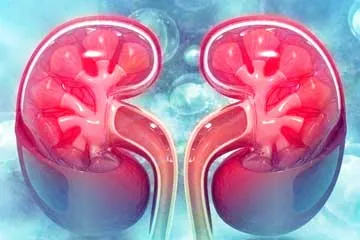
Is nephrotic syndrome serious or not? Before discussing Nephrotic syndrome's seriousness, we must first understand what nephrotic syndrome is. It is not a single kidney disease; it is a bunch of symptoms that show that the kidneys are not healthy thus, are not working correctly. The symptoms of nephrotic syndrome can be comprised:
These symptoms are collectively called Nephrotic syndrome in adults. However, it has been observed to affect both children and adults of any age group. Nephrotic syndrome ayurvedic treatment from Karma Ayurveda has been of help to Kidney patients.
If your kidneys stop working over a period of time, it could be due to nephrotic syndrome. It can be handled well if taken timely care but if you don’t take the proper treatment, it can be life-threatening for you. If your kidney loses most of its functioning ability, you may require a kidney transplant or dialysis. It must be considered that as the probability of your infections and nephrotic syndrome increases, it can lead to kidney failure.
One must not forget that Nephrotic syndrome is always curable. The degree of cureability depends on many factors. Although it is considered a serious condition, usually, the patients respond well to the treatment and can live a simple and good life.
The causes of nephrotic syndrome are classified as primary and secondary causes. Primary causes are the factors that directly affect the kidneys, while secondary causes are the diseases that indirectly affect the conditions.
The primary causes of Nephrotic syndrome are-
Our dieticians and healthcare professionals, most of the time, recommend taking care of diet and nutrition to patients with nephrotic syndrome. However, it must be understood that changes in your diet will not cure the disease but will help relieve some of your symptoms and will not lead to the progression of the disease. Swelling is the most commonly observed symptom in kidney diseases. One can reduce swelling by limiting the amount of sodium in your diet. The most common source of sodium in our diet is salt. Swelling can also be reduced by controlling the amount of fluid intake.
Diabetes and Blood pressure, the most commonly associated reasons with kidney diseases, could be managed with diet control. Reducing the consumption of saturated fat and cholesterol in your diet can help manage hyperlipidemia and thus would be assisting in reducing the problem of Cardiac diseases. Thus, it is suggested to limit foods that are rich in fat content like full-fat dairy, red meat, processed meat, cheese, fried foods, baked goods and sweets.
As already discussed, nephrotic syndrome is a group of symptoms. These symptoms are visible when your kidney stops functioning properly. You may not observe the symptoms immediately and it can be silent for a long duration of time. It is suggested that if you observe the following symptoms, then it should be time to visit a doctor:
Here is the clue that if you are experiencing any of the above symptoms or suddenly unexplained symptoms like headache, cold, fever, etc., it is time to consult a doctor. The condition can be controlled well if treated on time. When ignored, it can lead to other severe disorders like chronic kidney disease and kidney failure.
Can Nephrotic Syndrome Be Prevented? If Yes, Then How?
The answer is, Yes! Nephrotic syndrome can be prevented, but only in case of certain causes and not every cause can be prevented. One can stop damage to glomeruli only through the following ways-
It has been observed that Ayurvedic Treatment is found to be effective for Nephrotic Syndrome. Nephrotic Syndrome Treatment in Ayurveda has been benefitting Kidney patients for a long. Ayurveda is India’s ancient system of medicine that works with the help of herbs and herbal formulations. These medicines are easy to consume and have the least side effects.
Nephrotic syndrome is a collection of symptoms indicating the improper working of kidneys. If not treated on time, it can become a serious issue for adults and children. Prolonged untreated nephrotic syndrome can lead to loss of life. It is thus always advisable to stay attentive and care for your kidneys. One must consult a kidney specialist hospital and start treatment as soon as possible. Ayurveda, an Indian medicine system, has helped cure kidney diseases and help rejuvenate diseased organs
Second Floor, 77, Block C, Tarun Enclave, Pitampura, New Delhi, Delhi, 110034